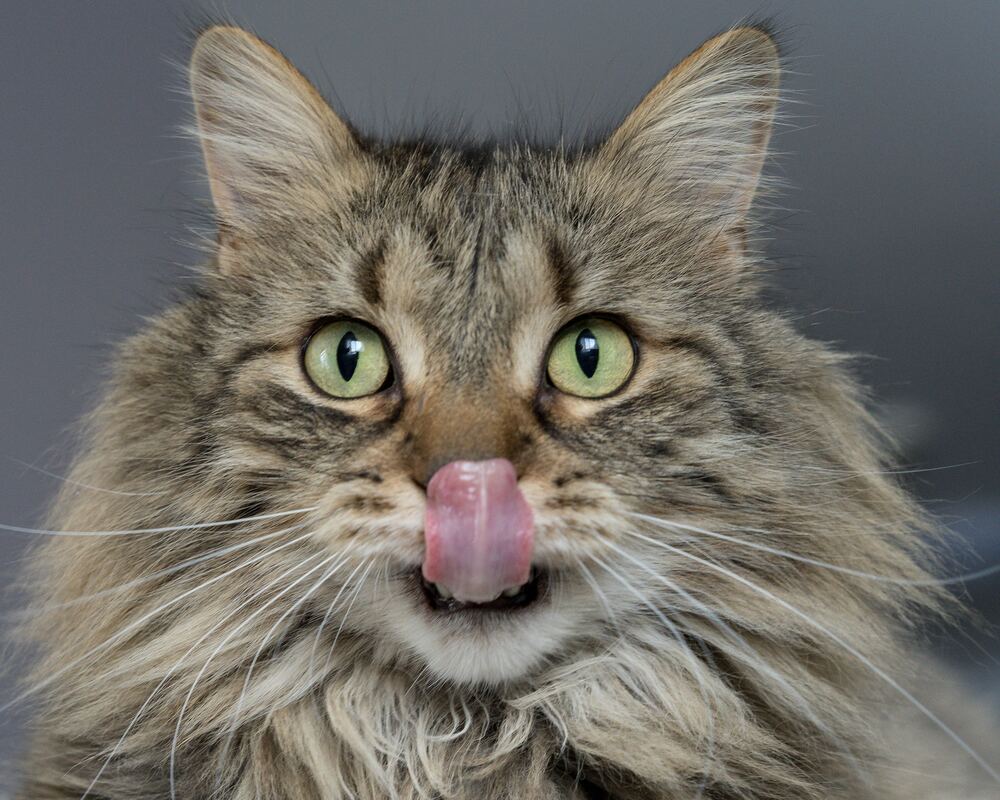|
Even animals aren't immune to fad diets. But which ones are worth it? Learn about vegan and raw diets for cats.
How Niche Diets Affect Your Cat In the last few years, we all have been inundated with organic foods and complicated diets touting health benefits and overall feeling better. Having been raised to avoid processed foods and lean more towards veggies than candy bars, I definitely understand the interest in eating healthier and living a cleaner lifestyle. And with the explosion of pet foods and treats now available, there are more diets than ever for you AND your cat. Some of these new diets originated for humans and have migrated to the pet market. Let’s look at the top two and understand the risk and benefits for your cat. Can Cats Go Vegan? My dad loved veggies, tofu and all things green or cruciferous but would Daphne, my little stray who brings me a half-eaten mouse, feel the same? As a bottom-line fact to keep in mind, cats and humans are physiologically designed differently. Kittens must have protein more than any other developing animal and grown cats need it more than even dogs or humans. Cats are what we call “obligate carnivores” which means that they must have meat in order to obtain vital nutrients to survive. One such protein is taurine, which can only be derived from animal-based protein. Some other essential amino acids which cats require for a healthy diet are arginine, cysteine, vitamin A and vitamin D. A cat’s digestive tract is designed shorter than a human’s, which means breaking down lots of fruits and veggies can be more difficult on their system. Out in the wild, cats eat insects (my sweet Maddie used to hunt spiders in the basement!), small rodents and birds (Daphne’s favorite meals), reptiles and other small animals. It doesn’t matter what kind of meat the cat is ingesting, they simply need meat to survive. Lack of these important nutrients can cause very serious health issues such as blindness, deafness, skin problems, organ damage and worst case, death. All of this being said, vegan cat foods are available on the market. However, cat owners should remember that felines evolved to need animal-based proteins in their diets. What is a Raw Diet? Back to my dad and his love of raw veggies. He would always tell me that raw and uncooked was best as the nutrients weren’t cooked out of the vegetables. There is a similar movement with pet owners that believe raw food (specifically meat) is best as that is most similar to what they’d eat naturally in the wild. The meats eaten by animals are the muscles, organs and bones of the prey. Most domestic cats don’t eat wild prey as a food source, besides the odd mouse in the yard. Feral cats and wild animals do of course live off of prey. However, their life spans are much shorter than a domesticated cat, which can live to an average age of 15. The main concern with raw food and preparing meals for your kitty indoors is the same as humans face. Germs such as e.coli are still an issue for animals. As well as potentially infecting your cat, handling raw meat can cause germ spreading and cross contamination with other food and surfaces in your home. As mentioned earlier, feline digestive tracts are designed differently than humans and they can tolerate many more germs than we can. However, it is still very risky especially if the cat has any health conditions, is older or immunocompromised. Another difference in raw meat is that there will have to be some supplements added to balance the meal to make it complete. Feral cats naturally know how to hunt and balance their diets with fiber and vitamins not found in meat, but indoor cats are dependent on us for those decisions. If you decide for whatever reason to switch your cat to a vegan or raw diet exclusively, talk to your vet first and ask for guidance. You may even want to consult a pet nutritionist who can guide you and help along the way. The veterinarian may even carry some of the new foods in their office or direct you to a safe and reliable source or brand. As with any dietary change, think about the well-being and health of your cat first and remember that healthy decisions for humans won’t affect cats in the same way.
0 Comments
Leave a Reply. |
AuthorWhen Cari has some free time from all the kitties, she likes to share her knowledge of all things cat in this bi-monthly blog. Enjoy the read! Archives
June 2024
Categories |


 RSS Feed
RSS Feed